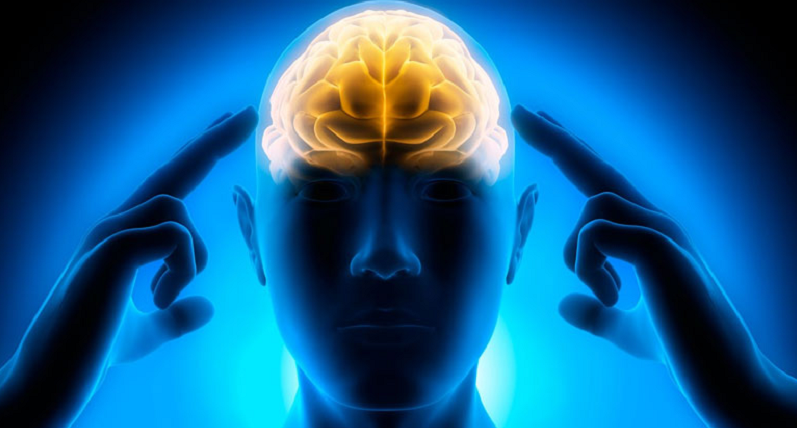
In today’s fast-paced and information-rich world, maintaining and improving brain function has become a priority for many. This is where nootropics, a class of substances known for their brain-boosting capabilities, come into play. Among these, Rhodiola Rosea stands out for its unique properties. Here we explore the fundamentals of brain health and the incredible process of neuroplasticity – the brain’s ability to reorganize itself by forming new neural connections. And we look at the modern scientific perspectives of Rhodiola Rosea, unraveling how this remarkable herb not only enhances cognitive abilities but also plays a crucial role in improving the brain’s adaptability and resilience.
Contents
Brain Health: Fundamentals and Importance
The quest for improved cognitive function and overall brain health is a journey that many of us are keenly interested in. Here we lay the groundwork for understanding what brain health really entails and why it is so crucial for our overall well-being.
Defining Brain Health
Brain health refers to the optimal functioning of the brain in various aspects, including cognitive capabilities, emotional balance, and neurological fitness. It’s not just about the absence of diseases or mental health disorders; it encompasses the brain’s ability to process information, adapt to challenges, maintain focus, and recover from brain injuries. This multifaceted nature makes brain health a complex but vital area of our overall health.
A healthy brain is the cornerstone of our ability to think, learn, remember, and even maintain a sense of self. The brain’s health is influenced by several factors, including genetics, environment, lifestyle choices, and nutrition. This complex interplay means that maintaining brain health is a dynamic process, requiring attention and care throughout life.
Key Components of a Healthy Brain
When we speak of a healthy brain, several key components come into play. First and foremost is cognitive function, which includes processes like memory, attention, problem-solving, and decision-making. A healthy brain processes information efficiently, retains what is necessary, and discards what is not.
Another critical component is emotional health. This includes the ability to manage emotions, cope with stress, and maintain a positive mood. Emotional health is deeply intertwined with cognitive function; a brain that is burdened with unmanaged stress or unresolved emotions cannot function at its optimal level.
Neurological fitness is also a vital aspect of brain health. This refers to the physical state of the brain and its ability to maintain neural pathways and develop new ones. A neurologically fit brain is better equipped to handle the changes associated with aging and is more resilient to neurological diseases [1].
The Impact of Lifestyle and Supplements on Brain Health
Our daily choices play a significant role in maintaining brain health. Lifestyle factors such as regular exercise, adequate sleep, stress management, and a balanced diet are foundational to a healthy brain. Regular physical activity, for instance, is known to enhance cognitive function and may even promote the growth of new neurons, a process known as neurogenesis.
Diet also plays a crucial role. Foods rich in antioxidants, healthy fats, vitamins, and minerals provide the essential nutrients that the brain needs to function effectively. In addition to diet, supplements can play a supporting role. Here, nootropics like Rhodiola Rosea come into the picture. They are believed to offer various benefits for brain health, from improving cognitive function to enhancing mood and resilience against stress.

Neuroplasticity: Understanding the Brain’s Ability to Adapt
Neuroplasticity is a term that captures the remarkable ability of our brain to reorganize itself. It’s a concept that has revolutionized our understanding of the brain and its capacity to adapt and change, even into adulthood.
Explaining Neuroplasticity
Neuroplasticity, in its simplest form, refers to the brain’s ability to change and adapt as a result of experience. This adaptability is not just limited to the learning of new facts or skills but also includes the brain’s capacity to reorganize itself after injury. The traditional view that the brain’s structure was fixed after a certain period of early childhood has been overturned by decades of research showing that our brains are dynamic and constantly evolving.
This plasticity occurs at various levels, from cellular changes in response to learning, to large-scale cortical remapping in response to injury. The brain achieves this remarkable feat through several mechanisms, such as strengthening or weakening the connections between neurons (synaptic plasticity), the growth of new neurons (neurogenesis), and even altering its own structure in response to learning or environmental changes [2].
The Role of Neuroplasticity in Learning and Memory
Neuroplasticity is at the heart of learning and memory. When we learn something new, our brain changes physically and functionally. This involves forming new connections between neurons or strengthening existing ones, a process known as synaptic plasticity. Each time we recall a memory or practice a skill, these neural connections become stronger, making the recall or execution of that skill more efficient.
This adaptive nature of the brain is not just crucial for acquiring new knowledge and skills but also for recovery from brain injuries. When one part of the brain is damaged, other parts can sometimes take over its functions, showcasing the incredible adaptability and resilience of our neural networks.
Factors Influencing Neuroplasticity
Several factors influence the brain’s neuroplastic capabilities. Age is a significant factor; while neuroplasticity occurs throughout our life, it is more pronounced in childhood and tends to decrease with age. However, this doesn’t mean that adults cannot change their brains; adult neuroplasticity, though less robust, is still a powerful tool for learning and adaptation.
Lifestyle factors also play a crucial role in neuroplasticity. Physical exercise, mental stimulation, proper nutrition, and adequate sleep are all crucial for maintaining the plasticity of the brain. These activities provide the necessary stimulation and nutrients that the brain needs to adapt and rewire itself.
Moreover, stress and mental health have a significant impact on neuroplasticity. Chronic stress, for example, can impair the brain’s plasticity, while practices like meditation, mindfulness, and engaging in new learning experiences can enhance it.

Rhodiola Rosea and Brain Health
In the realm of cognitive enhancement and natural health remedies, Rhodiola Rosea has emerged as a noteworthy herb. Known for its adaptogenic properties, it has been linked to various benefits for brain health.
How Rhodiola Rosea Supports Overall Brain Health
Rhodiola Rosea is not just another supplement; it’s a potent herb that has been used for centuries in traditional medicine, primarily in Russia and Scandinavia. Modern scientific research has begun to uncover how this herb positively affects brain health. One of its primary benefits is its ability to reduce fatigue and combat stress. Stress, especially when chronic, can have detrimental effects on cognitive functions, including memory, attention, and decision-making. Rhodiola Rosea helps in managing the body’s stress response by balancing stress hormones like cortisol [3].
Moreover, Rhodiola has been found to possess antioxidant properties. Oxidative stress is a significant factor contributing to the aging of the brain and the development of neurodegenerative diseases. By combating oxidative stress, Rhodiola Rosea helps in protecting the brain cells from damage and aging.
Research Findings on Rhodiola Rosea’s Effects on Cognitive Functions
Numerous studies have been conducted to understand the impact of Rhodiola Rosea on cognitive functions. These studies have revealed that Rhodiola can improve concentration, memory, and mental performance, especially under conditions of stress and fatigue. For instance, a study published in the journal ‘Phytomedicine’ found that Rhodiola extract improved the cognitive performance of physicians during night duty.
Rhodiola’s ability to enhance cognitive functions is also linked to its effect on neurotransmitter systems in the brain. It influences the levels of serotonin and dopamine, which are crucial for mood regulation, focus, and motivation. By modulating these neurotransmitters, Rhodiola Rosea can contribute to better mental clarity and a more balanced emotional state.
Comparing Rhodiola Rosea with Other Brain Health Supplements
While there are many supplements and nootropics touted for their brain health benefits, Rhodiola Rosea stands out for its adaptogenic qualities. Unlike some cognitive enhancers that may stimulate the brain in a way that could lead to burnout or dependency, Rhodiola supports the brain’s natural ability to cope with stress, thus promoting long-term cognitive wellness.
When compared to other popular nootropics like Ginkgo Biloba or Panax Ginseng, Rhodiola Rosea has a unique advantage in its ability to not only enhance cognitive functions but also improve physical endurance and mental fatigue resistance. This makes it an excellent choice for individuals who are looking to support their brain health in a holistic manner, addressing both mental and physical aspects of well-being [4].
Rhodiola Rosea and Neuroplasticity
While Rhodiola Rosea is well-known for its benefits in enhancing overall brain health, its relationship with neuroplasticity is particularly intriguing. Neuroplasticity, the brain’s ability to adapt and reorganize itself, is fundamental for learning, memory, and recovery from brain injuries.
Mechanisms of Rhodiola Rosea in Enhancing Neuroplasticity
Rhodiola Rosea appears to impact neuroplasticity through several mechanisms. One of the key ways is by modulating the levels of neurotransmitters in the brain. Neurotransmitters like serotonin and dopamine are not only crucial for mood and cognition but also play a significant role in the brain’s plasticity. By influencing these neurotransmitters, Rhodiola Rosea may help in enhancing the brain’s ability to adapt and learn.
Another pathway through which Rhodiola may affect neuroplasticity is by protecting neurons from damage and supporting neuronal growth. Its antioxidant properties help in combating oxidative stress, a factor that can negatively impact neuroplasticity. By protecting neurons, Rhodiola Rosea may aid in maintaining the brain’s adaptability and resilience [5].
Clinical Studies and Evidences Involving Rhodiola Rosea and Neuroplasticity
The potential of Rhodiola Rosea in enhancing neuroplasticity has been the subject of several clinical studies. For instance, research has shown that Rhodiola can improve learning and memory in stressful conditions. This is particularly relevant as stress is known to impair neuroplasticity. By mitigating the effects of stress on the brain, Rhodiola Rosea can indirectly support neuroplasticity.
Moreover, some studies suggest that Rhodiola may promote the synthesis of neurotrophins, proteins that play a crucial role in the survival and growth of neurons. This effect could directly contribute to the brain’s plasticity, facilitating learning and adaptation to new experiences or recovery from injuries.
Potential Benefits of Rhodiola Rosea for Learning and Memory
The implications of Rhodiola Rosea’s impact on neuroplasticity are significant, especially in the context of learning and memory. For individuals looking to enhance their cognitive abilities, whether for academic, professional, or personal reasons, Rhodiola Rosea presents a promising option. By supporting neuroplasticity, it can aid in faster and more efficient learning, better retention of information, and improved problem-solving skills.
Furthermore, for those recovering from brain injuries or dealing with neurodegenerative conditions, Rhodiola Rosea’s potential in supporting neuroplasticity could be a valuable aspect of therapy. While it is not a cure, its role in enhancing the brain’s adaptability could contribute to better outcomes in rehabilitation and cognitive therapies.
References
[1] Rhodiola rosea L. Improves Learning and Memory Function: Preclinical Evidence and Possible Mechanisms
[2] Exploring the effect of adaptogenic Rhodiola Rosea extract on neuroplasticity in humans
[3] Effects of a Rhodiola rosea extract on mental resource allocation and attention
[4] Rhodiola Rosea: Dietary Supplements for Brain Health
[5] Adaptogens for Brain Health: Enhancing Cognitive Function Naturally

